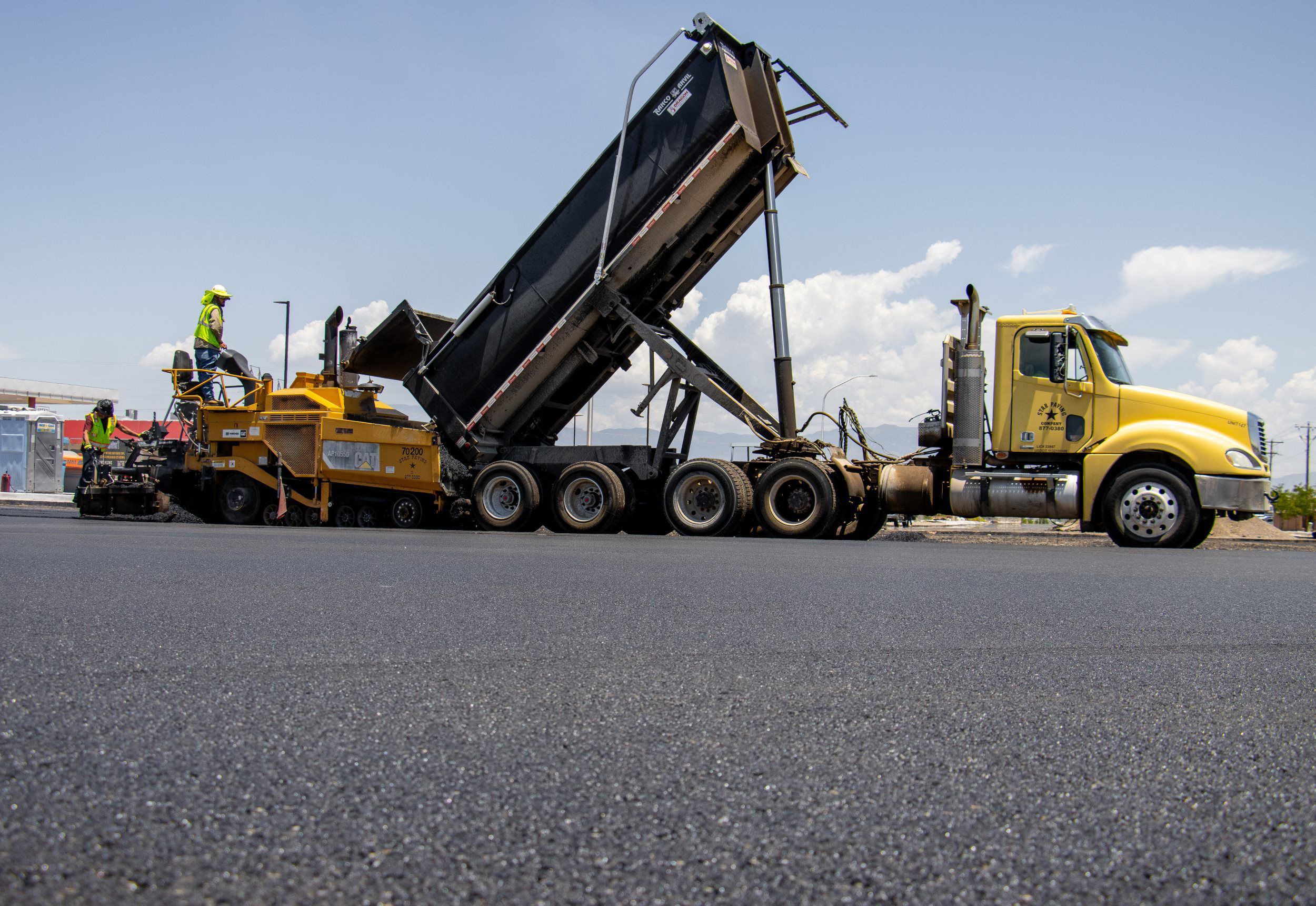
Planning a concrete project? Understanding the installation process is key to achieving a strong, long-lasting surface. In this step-by-step guide, Star Paving Company walks you through the essentials of professional concrete installation—from site prep to curing—so you know what to expect every step of the way.
Preparing for a Successful Concrete Installation
Concrete installation is a meticulous process that requires careful preparation before pouring the mix. It's essential to lay the groundwork effectively to ensure a successful and long-lasting finish.
SITE EVALUATION AND MEASUREMENT
The first step in any concrete installation project is a comprehensive site evaluation. This assessment enables us to effectively gauge the condition of the area where you want the concrete poured, take precise measurements, and identify the necessary preparations to ensure a successful installation.
CLEARING, EXCAVATING, AND SETTING FORMS
After evaluating the site, we will clear away any debris and excavate the ground. This process will provide the space needed to construct the concrete slab. Next, we will create setting forms based on the measurements taken earlier, ensuring a stable area for pouring our concrete mix.
CHOOSING THE RIGHT CONCRETE MIX FOR THE JOB
There are several types of concrete available, and we're skilled at selecting the perfect mix for your project. Drawing on our expertise and your plans, we confidently choose the best option to meet your needs.
POURING AND FINISHING THE CONCRETE
Once the site is prepped and forms are in place, it's time to pour the concrete. At Star Paving Company, we ensure an even pour and professional finish, using tools and techniques that create a smooth, durable surface ready to withstand time, weather, and heavy use.
MIXING AND POURING THE CONCRETE PROPERLY
The supplier’s concrete mixer truck delivers the selected concrete and we pour it into the forms prepared earlier. Once poured, the concrete will take 2-4 hours for the initial setting and 24-48 hours for it to harden.
LEVELING, SCREEDING, AND FLOATING TECHNIQUES
Once the concrete is poured, we follow a precise and effective process to ensure it transforms into a strong, usable slab. First, we level the surface for an even top. Next, we screed it by dragging a flat board across to compress and strengthen the material. Finally, we use small trowels to float the surface, expertly addressing any small imperfections and tackling those stubborn corners.
APPLYING FINISHES: BROOM, STAMPED, OR SMOOTH
There are several ways to finish it, including leaving the surface smooth. Other popular options include texturing the surface with broom bristles to enhance traction or stamping the concrete to create a subtle pattern.
Curing and Post-Installation Care Tips
The process of concrete drying is known as curing, and it is essential for properly using your new concrete. This entire process lasts about a month, and there are several important steps to follow during this time to achieve the best results. Follow these steps to ensure a smooth curing process for your concrete installation:
● Allow concrete to cure for at least 7 days for optimal strength; 28 days for full cure.
● Keep the surface moist during curing to prevent cracking.
● Avoid heavy foot or vehicle traffic for at least 48–72 hours.
● Use curing compounds or coverings to retain moisture, especially in hot or dry conditions.
● Seal the concrete after curing to protect against stains, weather, and wear.
● Avoid de-icing chemicals during the first winter to prevent surface damage.
● Regularly clean and reseal every few years to extend the life of your concrete surface.
Why Curing Is Crucial for Long-Term Durability
Curing is essential for strengthening your concrete. Although it may appear sturdy after about a week, it’s important to wait a full month before using it. Prematurely using the concrete can cause failures in areas that haven’t fully cured, putting your investment at risk.
PREVENTING CRACKS AND SURFACE DAMAGE
To prevent damage during the curing process, it is best to stay away from the area. Avoid touching the concrete and ensure that others do not interact with it either. Even if the surface appears dry, curing continues for the entire first month. Walking on it too soon can cause damage.
SEALING AND MAINTAINING YOUR CONCRETE SURFACE
After curing is complete, sealing your concrete can enhance its durability. Sealing solutions prevent water and other impurities from penetrating the material, which could lead to cracks forming over time.
Trust Star Paving Company for Expert Concrete Installation
Concrete is a great material with a ton of uses, so if you have ideas for a new project, Star Paving Company is your best option. We've been the best concrete and asphalt company in New Mexico for almost 70 years, with plenty of expertise and satisfied customers ready to vouch for our results. Large or small, we do all! Get in touch today to talk about your project and how we can help.
Featured Image: StockphotoVideo / Shutterstock




